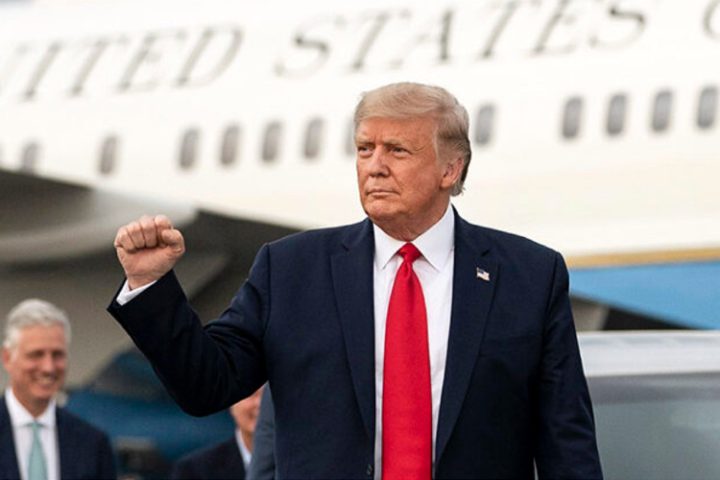
George Barna, the founder of the Barna Group, which specializes in studying the religious beliefs and behaviors of Americans, released on Friday the results of his latest poll: support for President Trump’s reelection is nearly unanimous among SAGE Cons — spiritually active governance-engaged conservative Christians. In 2016 support for Trump was 91 percent. Now it is 96 percent.
Bara explained why there was such an increase:
Four years ago, most “SAGE Cons” reluctantly voted for Trump, selecting him because they felt his opponent, Hillary Clinton, was a danger to America and stood for numerous things that conflicted with the beliefs of SAGE Cons….
[Today] SAGE Cons appreciate the Trump Administration’s progress related to federal court appointments, support for pro-life policies, investments in the military and enforcement of the law, attempts to reduce the federal bureaucracy and the authority of the federal government, strengthening America’s relationship with Israel, and support for the free market economy.
Although SAGE Cons represent only about a tenth of the nation’s population, their electoral “influence” touches the rest of the voting bloc who consider themselves Christian conservatives. “SAGE Cons,” said Barna, “are an important barometer of how the [overall] conservative Christian population will behave in the [upcoming] election.”
The influence of SAGE Cons is already showing up in other more general polling such as that done by Pew Research Center. In June it learned that “at least 82 percent of white evangelicals were planning to vote for Trump in November.”
Internal polling numbers done by the National Hispanic Christian Leadership Conference says the number is closer to 85 percent. That compares to the 81 percent support Trump received from white evangelicals in 2016.
There are a number of reasons for the increased support for Trump. First, in 2016 he was an unknown quantity. Second, Hillary Clinton was a known quantity and her history and character turned off many evangelicals. In 2016, for instance, only 30 percent of white evangelicals voted “for” Trump while 45 percent voted “against” Clinton. Now, according to Pew, 57 percent are planning on voting “for” Trump while only 20 percent say they’ll be voting “against” Joe Biden.
In addition Trump hasn’t disappointed them in keeping his promises. As Kate Shellnutt, writing in Christianity Today, noted: “This is what they see from the president: a leader who prays and welcomes their prayers and who has kept his promises to improve the economy, uphold pro-life stances, and appoint conservative judges.”
He has delivered on promises to move the U.S. embassy from Tel Aviv to Jerusalem; issued orders limiting government funding to groups that provide abortions; secured the release of Pastor Andrew Brunson from Turkey; lowered taxes and reduced government regulations; built the wall; expanded and updated the military; and on and on.
Barna also took off on the skewed national media’s poll results:
There are a number of instances where the national media have misrepresented the incidence of party identification of the voting population, effectively skewing the survey results.
In each case discovered so far, the proportion of Democrats has been unrealistically inflated, and the proportion of Republicans has been diminished, giving the Democrats a false advantage in the presidential preference estimates.
Polls by CBS News, Fox News, CNN, YouGov, and Reuters, among others, have all released surveys based on samples with distorted proportions of party identification.
When that skewing is taken into account, along with gains among black and brown voters for Trump, the nearly unanimous support of the president by SAGE Cons bodes well for another four years for the incumbent. .
Related article:
Pollster Who Called 2016 for Trump Says He’ll Repeat in 2020



